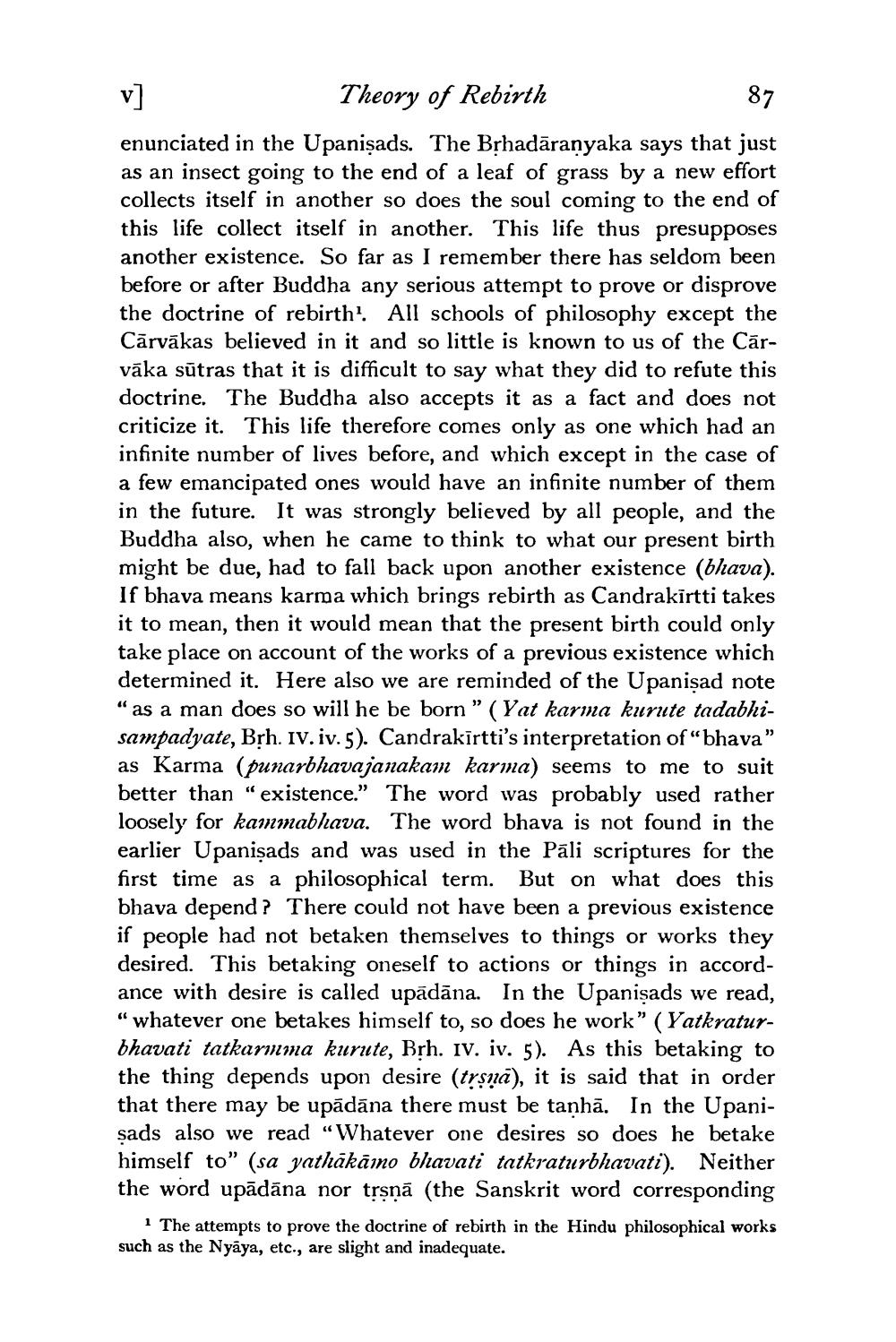________________
87
v]
Theory of Rebirth
enunciated in the Upanisads. The Bṛhadaranyaka says that just as an insect going to the end of a leaf of grass by a new effort collects itself in another so does the soul coming to the end of this life collect itself in another. This life thus presupposes another existence. So far as I remember there has seldom been before or after Buddha any serious attempt to prove or disprove the doctrine of rebirth'. All schools of philosophy except the Cārvākas believed in it and so little is known to us of the Carvāka sūtras that it is difficult to say what they did to refute this doctrine. The Buddha also accepts it as a fact and does not criticize it. This life therefore comes only as one which had an infinite number of lives before, and which except in the case of a few emancipated ones would have an infinite number of them in the future. It was strongly believed by all people, and the Buddha also, when he came to think to what our present birth might be due, had to fall back upon another existence (bhava). If bhava means karma which brings rebirth as Candrakirtti takes it to mean, then it would mean that the present birth could only take place on account of the works of a previous existence which determined it. Here also we are reminded of the Upanisad note
46
as a man does so will he be born" (Yat karma kurute tadabhisampadyate, Brh. IV. iv. 5). Candrakīrtti's interpretation of "bhava" as Karma (punarbhavajanakam karma) seems to me to suit better than "existence." The word was probably used rather loosely for kammabhava. The word bhava is not found in the earlier Upanisads and was used in the Pali scriptures for the first time as a philosophical term. But on what does this bhava depend? There could not have been a previous existence if people had not betaken themselves to things or works they desired. This betaking oneself to actions or things in accordance with desire is called upādāna. In the Upanisads we read, "whatever one betakes himself to, so does he work" (Yatkraturbhavati tatkarmma kurute, Brh. IV. iv. 5). As this betaking to the thing depends upon desire (tṛṣṇa), it is said that in order that there may be upādāna there must be tanhã. In the Upaniṣads also we read "Whatever one desires so does he betake himself to" (sa yathākāmo bhavati tatkraturbhavati). Neither the word upādāna nor tṛṣṇā (the Sanskrit word corresponding
1 The attempts to prove the doctrine of rebirth in the Hindu philosophical works such as the Nyaya, etc., are slight and inadequate.




